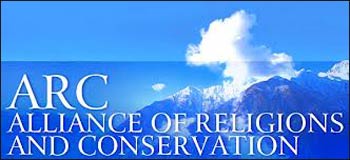By Paul Chaffee
ON THESE SHOULDERS – UNEXPECTED COLLABORATORS IN CARING FOR THE EARTH
Prince Philip, Duke of Edinburgh Photo: Wikipedia
Environmental activists from spiritual and religious communities owe an enormous debt to leaders and institutions in the secular community who, unknown to most of us, prepared the way.
HRH Prince Philip, Duke of Edinburgh, is a case in point. Last portrayed in public as a deer hunter in the 2006 film The Queen, largely about his wife Elizabeth II, he’s typically had second or third billing in stories about the royals. Who would guess, then, that Prince Philip has been an unparalleled leader in supporting religious environmental activism? More than anyone before or since, he has inspired, helped organize, and generated funding for religious engagement with conservation, the environment, and interfaith collaboration to heal the Earth.

Philip was the president of World Wildlife Fund (WWF) International in 1986, a conservation organization founded in 1961 that today enjoys 5 million supporters in more than 100 countries. Twenty-seven years ago he sent a startling and much-noticed invitation to religious leaders from five major traditions – Buddhism, Christianity, Hinduism, Islam, and Judaism. He asked them to come to Assisi to discuss “how their faiths could help save the natural world.”
In Assisi the religious leaders sat down with distinguished environmentalists, and the results were published in the Assisi Declarations. A process was set in motion, with more and more faiths issuing their own declarations, articulating their values, goals, and plans about becoming a more healing influence on nature and the environment. Along with declarations from multiple traditions, a number of secular nonprofits including the United Nations and the World Bank joined to support the world’s aggregate religious community in conserving and protecting our global environment.

In 1995, Philip and a host of colleagues founded ARC, the Alliance for Religions and Conservation. They define their purpose in one sentence: ARC is a secular body that helps the world’s major faiths develop environmental programmes based on their own core teachings, beliefs, and practices. Today, under ARC’s auspices, more than 50 major religious bodies have published detailed agendas for themselves regarding the environment.
ARC works with religious groups in brokering partnerships, strategic communications, demonstration projects, and special events and programs – always promoting multireligious support of the Earth and its living systems. New resources keep being created. Hundreds of millions have participated and are involved in the cause. ARC’s history is told in brief on their website, with a list of achievements including a shift in humankind’s relationship with forests.
Essentially ARC is a secular foundation, a stakeholder nearly invisible to the general public, empowering religious communities to become engaged in conserving and healing the Earth. When you survey their website, you discover the same imagination and robust follow-through that is Philip’s pioneering legacy.


